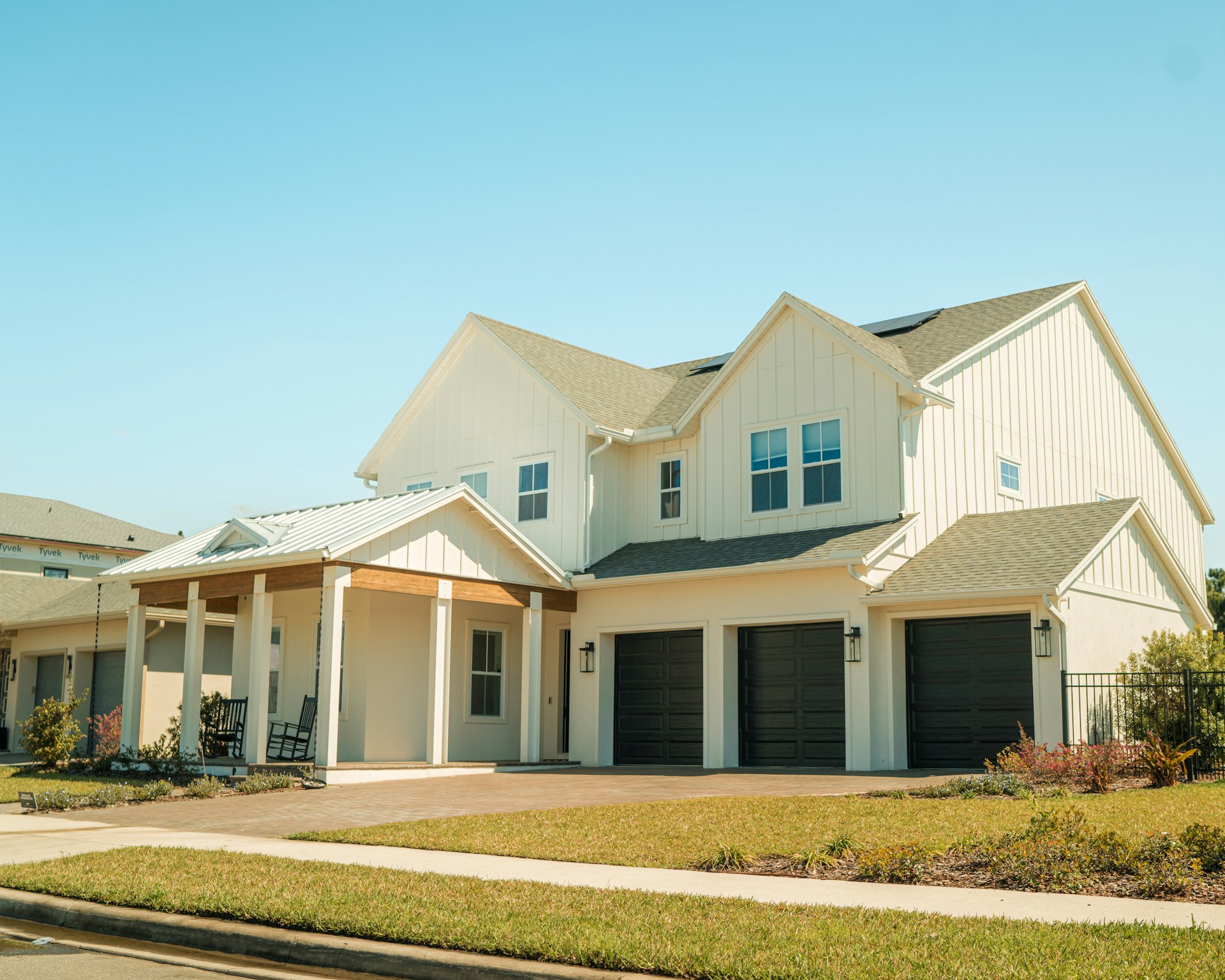Buying a second home is an exciting milestone, whether it’s a vacation spot, an investment property, or a place for family. The key is finding a financing option that saves you time, money, and stress.
For many Texans, flexible choices like owner financing make the process much easier than going through traditional banks. If you’ve been turned away because of bad credit, no credit, or self-employment income, owner financing can open the door to possibilities you might not have thought were within reach.
Unlike second-home loans from banks—which often require large down payments and strict credit checks—Houston Owner Financing helps you move forward with options built around your situation. You don’t have to wait on bank approvals or feel boxed in by rigid rules.
In this guide, we’ll walk you through practical ways to finance your second home in Houston, so you can take the next step toward ownership with confidence.
Understanding Second Home Financing Options
When you buy a second home, you’ll encounter financing choices that vary by down payment size, interest rates, and qualification rules. Some options use your current home’s equity, while others rely on separate mortgages.
Knowing each type helps you pick what fits your finances and goals.
Conventional Loans for Second Homes
Conventional loans are a common way to finance a second home. These loans typically require a down payment of at least 10% to 20%.
Your credit score and debt-to-income ratio need to be in good shape since lenders want to see you can handle two mortgages. Interest rates for conventional second home loans may be slightly higher than those for primary homes.
Lenders expect the second property to be used for vacation or personal use, not rental income, which affects qualifying rules. You’ll need to prove stable income and have reserves to cover several months of payments.
If you want a straightforward approach and meet credit standards, a conventional loan could work well.
Home Equity Loans and HELOCs
Using the equity in your current home is another way to finance a second home. A home equity loan gives you a lump sum with a fixed interest rate.
You repay it separately from your main mortgage. A HELOC (home equity line of credit) works like a credit card, letting you borrow up to a limit and pay interest only on what you use.
HELOCs often have variable rates, which can rise or fall over time. These options may require less paperwork and can be faster to access than a new loan.
However, you’re putting your first home at risk since it acts as collateral. Equity loans and HELOCs are best if your current home has good value and you prefer flexible repayment.
Cash-Out Refinancing
Cash-out refinancing replaces your current mortgage with a new, larger one. You get the difference in cash, which you can use as a down payment for your second home.
This method lets you take advantage of your home’s equity without a separate loan. You might get a better interest rate than a home equity loan, but monthly payments will increase because the mortgage balance grows.
Cash-out refinancing usually needs good credit and proof of income. It adds to your monthly obligations but can be a cost-effective way to fund a second home if you plan to hold both properties long-term.
Jumbo Loans
If your second home is expensive and exceeds standard loan limits, you may need a jumbo loan. These loans cover amounts above conforming limits, which vary by region.
Jumbo loans often require larger down payments, sometimes 20% or more. You’ll also face higher credit score requirements and a thorough financial background check.
Because jumbo loans carry more risk, interest rates and fees are usually higher. This option suits buyers targeting luxury or high-value homes who have strong finances.
When traditional loans or refinancing aren’t an option, Houston Owner Financing offers flexible, bank-free alternatives. They help you find owner financing homes with terms suited to your credit and income, making the second home buying process easier for Texans like you.
Evaluating Your Financial Readiness
Before buying a second home, you need to know if your finances support the purchase. This means understanding how much debt you have, your credit health, and the money you can put down upfront.
Each of these affects your loan options, monthly costs, and approval chances.
Assessing Your Debt-to-Income Ratio
Your debt-to-income (DTI) ratio is a key number lenders use to gauge if you can handle new payments. It compares your monthly debts like car loans, credit cards, and current mortgage to your gross monthly income.
Ideally, your total DTI, including the new second home mortgage, should stay below 43%. If your DTI is too high, lenders may see you as a risk.
This could mean higher interest rates or needing a larger down payment. To improve your DTI, pay down debts and avoid new ones before applying.
Houston Owner Financing can offer flexible options if your DTI is a concern, as they don’t always follow strict traditional lending rules.
Credit Score Requirements
Your credit score shows how well you’ve managed credit in the past. For a second home, lenders often want a score above 700, but some may approve lower scores with higher down payments or different loan terms.
If your credit is below this, you might face higher interest rates or need alternative financing. Improving your credit before buying helps you get a better rate and saves you money over time.
Pay bills on time, reduce credit card balances, and avoid opening new credit lines. Houston Owner Financing specializes in helping buyers with less-than-perfect credit through tailored agreements that don’t rely on traditional credit checks.
Down Payment Considerations
Down payments for second homes are usually higher than for primary homes. Expect to put down at least 10% to 20% of the purchase price.
Larger down payments show lenders that you’re serious and reduce their risk, which can lead to better loan terms. Besides the down payment, you should have cash ready for closing costs, taxes, and potential repairs.
Saving this amount beforehand makes the process smoother. If saving for a traditional down payment is hard, consider owner financing.
Houston Owner Financing can help structure deals with lower upfront costs to fit your budget.
Comparing Loan Terms and Interest Rates
When financing a second home, understanding loan details is important. Your choices about mortgage type, interest rate, and loan length affect how much you pay monthly and over time.
These factors also influence your budget and affordability.
Fixed-Rate vs. Adjustable-Rate Mortgages
With a fixed-rate mortgage, your interest rate stays the same for the entire loan term. This means your monthly payments are consistent, making it easier to plan your budget.
Fixed rates suit buyers who want stability and predictability. Adjustable-rate mortgages (ARMs) start with a lower rate that can change after a set period.
Your payments may go up or down based on market rates. ARMs can save money early on but add risk later.
If you want control over your payments, fixed-rate loans are safer. But if you expect to sell or refinance soon, ARMs may offer lower initial costs.
Interest Rate Impacts on Affordability
Interest rates directly impact how much extra you pay beyond the loan amount. A lower rate reduces your monthly payment and total interest paid.
For example, on a $200,000 second home loan, a 5% interest rate versus 6% can save you hundreds each month. Even small differences add up over time.
Because rates for second homes can be higher than primary homes, shop around for the best offer. We help find flexible options, especially if traditional banks turn you down due to credit or income issues.
Loan Term Lengths
Loan terms affect both monthly payments and total interest costs. Common options are 15, 20, or 30 years.
Shorter terms mean higher monthly payments but lower total interest. Longer terms lower monthly costs but increase what you pay overall.
Choose a term that fits your financial situation. If you plan to keep the home for a long time and can afford higher payments, a 15-year loan saves money.
If you want lower payments now, 30 years may be better. Look at monthly payment plus total cost before deciding.
Here at Houston Owner Financing, we offer personalized advice to help you pick terms that work for your budget and goals.
Alternative Financing Methods
If traditional loans aren’t an option, you have other ways to finance your second home. These methods often offer more flexibility and can work around challenges like bad credit or nontraditional income.
Each option has unique terms and steps to qualify.
Seller Financing
With seller financing, the seller acts as the lender. Instead of getting a loan from a bank, you make payments directly to the seller over time.
This can be a faster way to buy because you avoid bank rules and lengthy approval processes. Seller financing usually requires a down payment, but the credit requirements tend to be lower.
You and the seller agree on the interest rate, payment schedule, and loan length. This method may have higher interest rates than banks, but it gives you a chance to own a home even with credit issues.
We specialize in this approach. They help buyers like you set up deals that fit your financial situation, making homeownership work without traditional bank loans.
Private Lenders
Private lenders are individuals or companies that offer loans outside the usual banking system. These lenders can be more flexible with credit checks and proof of income.
The process can be quicker, and they might approve you even if banks say no. Interest rates can be higher with private lenders, and loan terms vary widely.
You might need a larger down payment or additional collateral. Private lenders usually focus on the property’s value and your ability to repay, not just your credit score.
This option is good if you need funding fast or don’t meet bank income guidelines. Houston private lenders are often used by people who want a second home without the stress of strict bank rules.
Portfolio Loans
A portfolio loan is a type of mortgage that the lender keeps in their own portfolio instead of selling it to investors. Because they don’t have to follow all the strict rules, they can offer more flexible terms.
This flexibility means you might qualify with lower credit scores or unusual income situations, like self-employment. Portfolio loans can be helpful for buying a second home because they let the lender decide on your overall financial picture.
However, these loans can have higher interest rates and fees. They often require larger down payments.
If you want to buy a second home but can’t get approved through regular banks, asking about portfolio loans could open a new path.
Weighing the Pros and Cons of Each Financing Strategy
Choosing how to finance your second home requires understanding the benefits and risks involved. You need to compare loan options, consider the impact of using your current home’s equity, and be clear on the costs tied to each choice.
Benefits of Traditional Loans
Traditional loans, like conventional mortgages, are a common way to finance a second home. They often offer fixed interest rates and set monthly payments, which makes budgeting easier.
You can usually borrow a large amount if your credit and income qualify. This option spreads payments over many years, which can lower your monthly costs compared to lump sum methods.
However, qualifying can be tough if your credit isn’t strong or you don’t have steady income. You’ll also need a larger down payment in many cases, often 10-20%.
Using traditional loans can give you security and clear terms, but be prepared for strict approval rules. For those who don’t meet the usual bank standards, alternatives like our team at Houston Owner Financing can offer more flexibility without the need for perfect credit.
Risks of Leveraging Home Equity
Using the equity in your current home means you borrow against its value to fund your second one. This might be through a home equity loan or line of credit.
The biggest risk is that your primary home becomes collateral. If you can’t repay, you risk foreclosure on your main residence.
Equity loans may have lower interest rates than some personal loans, but they increase your total debt. If the market drops and your home’s value falls, you might owe more than your home is worth.
You also reduce the equity you’ve built, which could affect your financial flexibility in the future. Carefully assess your ability to meet payments before using this method.
Costs Associated with Different Options
Costs vary based on loan type, down payment size, and lender fees. Traditional loans often require lender fees, appraisal costs, and closing costs.
Owner financing may reduce some fees and allow more flexible terms. However, it could come with slightly higher interest.
When using home equity, you might pay interest on the loan plus closing costs. This option can help you avoid a separate down payment.
Make a simple cost comparison table:
| Financing Type | Typical Interest Rate | Down Payment | Other Costs |
| Traditional Loan | 5-7% | 10-20% | Appraisal, closing |
| Home Equity Loan/Line | 4-7% | None | Closing, fees |
| Owner Financing | 6-9% (varies) | Flexible | Lower fees, flexible |
Steps for Securing Financing for a Second Home
To get financing for your second home, you need to follow a few key steps. These include getting pre-approved, gathering all necessary paperwork, and completing the final closing process.
Each step is important to make sure the loan goes smoothly. It also helps you understand your costs and commitments.
Pre-Approval Process
Start by submitting a mortgage pre-approval application. This helps you know how much you can borrow and shows sellers you’re serious.
Lenders will look at your income, credit score, debt, and savings. If you have bad credit or nontraditional income, consider alternative lenders like us. We offer flexible, bank-free options.
Pre-approval usually requires filling out forms and allowing the lender to check your credit. Once approved, you’ll get a pre-approval letter that helps when making an offer on the home.
Keep in mind, this process may take a few days to a couple of weeks. The timeline depends on your lender and financial situation.
Documentation Requirements
You will need various documents to verify your financial status. These commonly include:
- Pay stubs or proof of income for the last 30 days
- Tax returns for the past two years
- Bank statements for all your accounts
- Identification like a driver’s license or passport
- Information on current debts and monthly expenses
If you are self-employed or have unusual income, you may also need profit and loss statements or contracts. Organizing these papers early can speed up approval.
Closing Procedures
Closing is the final step where ownership transfers to you. Before closing, you’ll review and sign all loan documents.
Make sure to read the terms carefully, including interest rate, monthly payments, and any fees. You’ll also pay the down payment and closing costs, which could include taxes, insurance, and lender fees.
Your lender or agent usually schedules this meeting and explains each charge clearly. Houston Owner Financing can guide you through closing, especially if you’re using owner financing without a bank.
They simplify paperwork and offer faster approvals. This helps you move into your new home without delays.
Legal and Tax Implications to Consider
Buying a second home means dealing with specific legal rules and tax issues. You’ll need to know what tax deductions apply and how local laws might affect your buying process.
These details can change how much you pay and impact your financing choices.
Tax Deductions and Liabilities
You can deduct mortgage interest on your second home, just like your main home. However, there are limits set by the IRS.
The total deduction for all state and local taxes, including property taxes on your second home, is capped at $10,000. If you rent out your second home, you may have to pay taxes on the rental income.
Using the home personally for more than 14 days a year changes the rules for deductions and tax liabilities. Make sure you document how you use the home and keep records of expenses to maximize your tax benefits and avoid surprises.
Consulting tax professionals familiar with second homes in Texas is a smart step.
State-Specific Regulations
Texas has laws that might affect your second home purchase, especially if you use owner financing. Some counties might have specific disclosure or recording requirements for owner-financed deals.
Property taxes in Houston and surrounding areas can vary. Check local rates and any exemptions you might qualify for.
These taxes affect your overall monthly costs and budgeting. If you’re working with Houston Owner Financing, you get help navigating these local rules.
Their flexible financing can make buying a home easier, even if banks say no because of your credit or income situation. Staying informed about state rules helps you avoid legal issues later.
Tips for Improving Loan Approval Chances
When applying for a loan to finance a second home, certain steps can make a big difference in how lenders view your application. You want to show that you’re a low-risk borrower by managing your debts, saving for a larger down payment, and improving your credit profile.
Reducing Outstanding Debt
Lowering the amount you owe is one of the best ways to improve your loan approval chances. Lenders look at your debt-to-income ratio (DTI), which compares your monthly debt payments to your income.
A lower DTI shows you can handle additional loan payments. Focus on paying down credit cards, personal loans, and any other debts you have.
Even small reductions can improve your DTI. Avoid taking on new debt before applying.
Keep track of regular bills like utilities and subscription services, as late or missed payments can hurt your chances.
Increasing Your Down Payment
Saving a larger down payment shows lenders that you have a financial stake in the home. This lowers their risk and improves your approval odds.
For a second home, putting down at least 20% is often recommended. This can also help you avoid private mortgage insurance (PMI), which adds to your monthly costs.
If you can afford it, paying more than 20% down will strengthen your application further. It may lower your monthly payments and give you more flexibility in the loan process.
Create a targeted savings plan with automatic deposits or cutbacks in non-essential spending to reach your down payment goal faster.
Improving Credit Health
Your credit score is a key factor lenders use to decide if you qualify. Higher credit scores make it easier to get approved with better terms.
Check your credit reports for errors and dispute anything incorrect. Pay bills on time and keep credit card balances well below your limits.
Avoid closing old accounts as they contribute to your credit history length. If you have a low score, focus on steady improvements over several months before applying.
Using tools like Houston Owner Financing can help if your credit score isn’t perfect. They offer flexible, bank-free loans that fit your situation.
Frequently Asked Questions
Financing a second home takes careful planning and knowing your options. You might consider creative loan choices, paying attention to lender rules, and thinking about how your current home factors in.
Understanding these details can help you make smarter decisions when buying or renting out a second property.
What are some innovative strategies for funding the purchase of a vacation home?
You can use the equity in your primary home to secure a loan for your second property. Home equity loans or lines of credit often offer lower interest rates than other loans.
Another option is owner financing, where the seller finances the home directly to you, bypassing traditional banks. Companies like Houston Owner Financing specialize in this, offering flexible terms if you have credit challenges.
Is it possible to buy a second property with no initial capital, and how can this be achieved?
Buying a second home without a down payment is difficult but sometimes possible through special loan programs or by negotiating owner financing.
You may also use rental income from your current home or other properties to qualify for a loan with low or no down payment. Lenders often want proof of steady income and reserves.
What considerations should I take into account when trying to rent out my first home to finance a second home?
Check if your current mortgage allows renting out your home. Understand local laws and rental market trends in Houston to set fair rent.
Be ready for extra costs like property management and maintenance. Lenders will count rental income differently, so verify how it affects your debt-to-income ratio for the second home loan.
What are the requirements for securing a mortgage on a second property intended for rental purposes?
Lenders often require a stronger credit score and larger reserves. You will likely need to show rental income history or a lease agreement.
Debt-to-income ratios can be stricter, and down payments are usually higher for investment properties.
How much down payment is typically required to finance a second home through a conventional loan?
Expect to pay at least 10% to 20% down on a second home. If the property will generate rental income, lenders might ask for 20% or more.
Using owner financing can sometimes reduce or spread out your initial costs.
What are the guidelines regarding the proximity of a second home to my primary residence according to mortgage lenders?
Lenders usually want a second home to be a reasonable distance away from your primary home—often a few hours’ drive.
This is to ensure it qualifies as a second home and not an investment or primary residence.
Check with your lender for specific mileage or time requirements.




